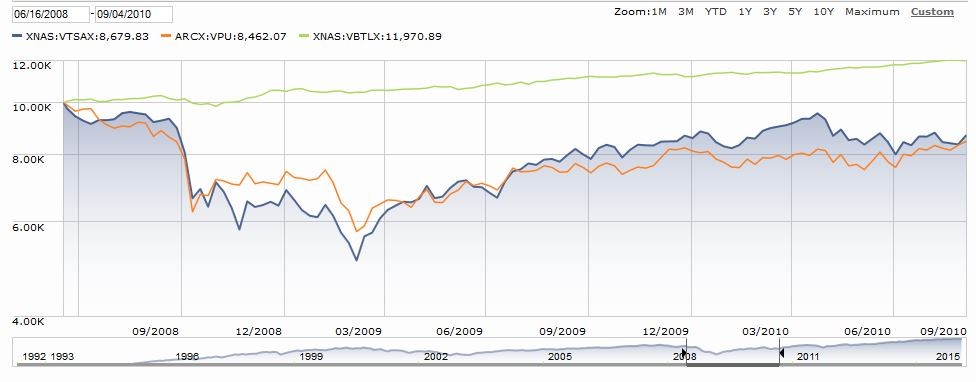Should you avoid buying bonds In LQD Or maybe LQD
Post on: 16 Март, 2015 No Comment

The problem with corporate bonds is that they are often are not very liquid, meaning that they trade infrequently. This creates a host of problems for bond ETFs which are described in our article Why Bond ETFs Often Do Not Track their NAV. The LQD tried to tackle the liquidity problem by only holding the most liquid corporate bonds. Unfortunately, the success of LQD and other large bond ETFs have created a new problem. Too much money flowing into too few bonds.
There was a great article written by Matt Levine of Dealbreaker about this issue. For readers with an extensive financial background, I recommend going directly to the article, “Bonds in ETFs Better Than Bonds That Aren’t in ETFs Sort Of ”. For the rest us, here are the key quotes from the article:
Bonds that are in the big ETFs aren’t simply better; they are more intense: they react more dramatically to economic news than the bonds that aren’t. Some of this is perhaps liquidity, but it may also be dissociation between some bonds that have been drafted into service as proxies for macroeconomic theses, and other bonds that are just bonds.
What is the difference between being “better” and “more intense”? “Better” means that they have achieved a higher rate of return. Goldman Sach’s estimates that over the last 3 years, bonds that were in the LQD have increased in value by 4% more than similar bonds not in the LQD. “More Intense” means that there is a multiplier factor attached to the bonds in LQD compared to similar bonds. If large corporate bond issues move higher or lower by X amount, then the bonds in LQD (and the LQD itself) will move by X times a number greater than one. If bond prices start going down (for example from rising interest rates), this would be bad news for LQD.
What does this mean to you?
1) If you are planning on buying individual bonds and holding them to maturity, you probably want to skip bonds that are in the LQD as they have a premium attached to them. Here is a list of bonds in the LQD .
2) If you want to buy an investment grade bond ETF and want to reduce volatility, you might want to select a fund that follows an index that is different than the one that LQD uses. I asked Dave Nadig of Index Universe to suggest an investment grade bond etf whose portfolio had limited overlap with LQD. He identified the Powershares Investment Grade Corporate bond ETF (PFIG) as a potential candidate. There is only a 40% overlap between its portfolio and LQD.














